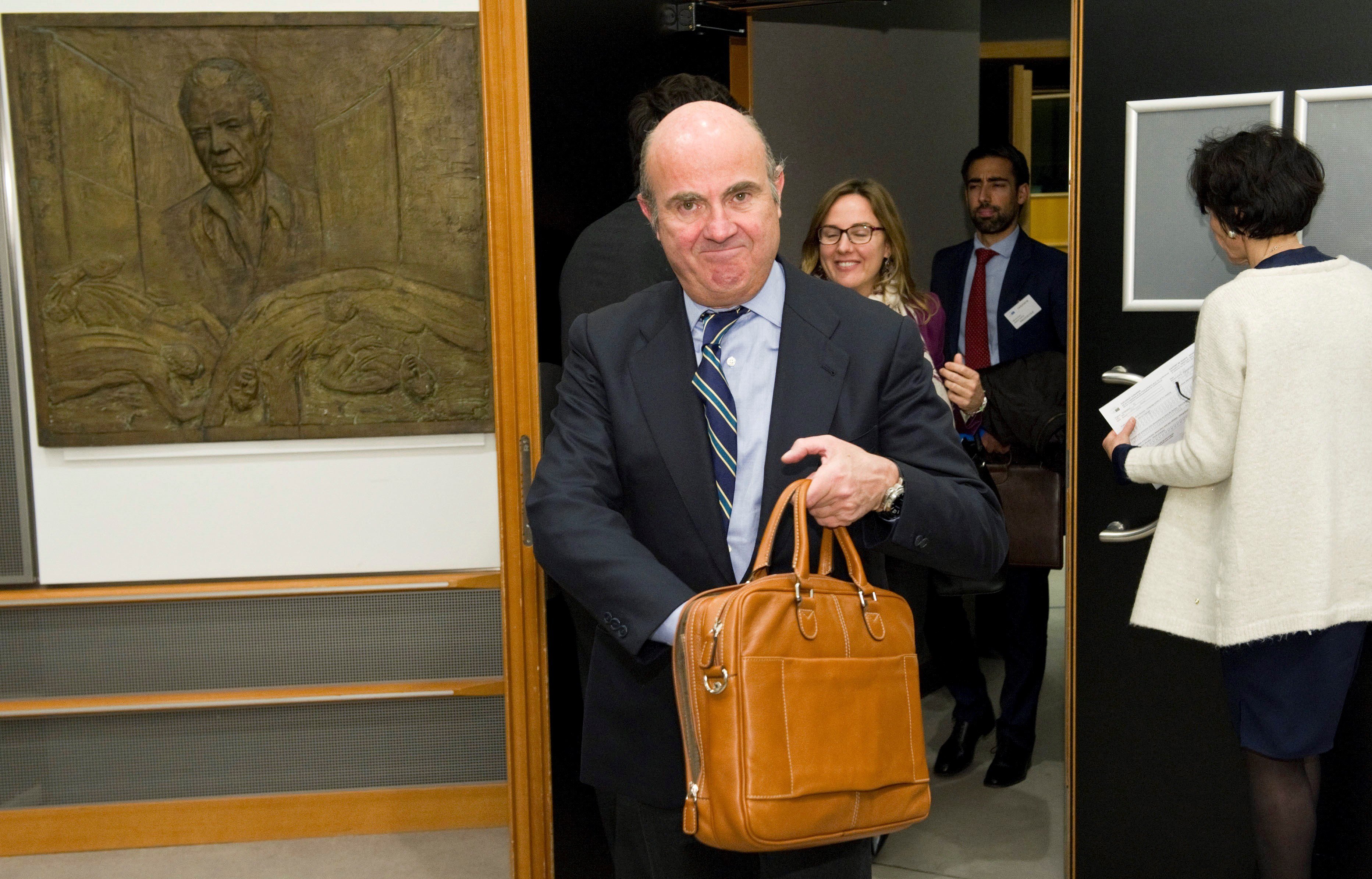Spanish economy minister Luis de Guindos will be the new vice-president of the European Central Bank (BCE) after his sole opponent, Philip Lane, withdrew his candidacy, probably once it became clear he didn't have enough support to be elected. De Guindos will be formally nominated this afternoon in a meeting of the Eurogroup, formed of the Eurozone finance ministers, and formalised on Tuesday in the Economic and Financial Affairs Council formed by ministers from all EU countries.
"A number of weeks ago I nominated Philip Lane for the position of vice president of the European Central Bank. Today I am confirming that we will not be putting this candidacy forward for a vote this evening", said Ireland's finance minister, Paschal Donohoe, upon his arrival at the meeting. "We believe it is very important given how important the role is of vice president of the ECB that the decision be made in the basis of consensus."
Last week European sources had already suggested that the Eurogroup would prefer to reach a decision by consensus, thus avoiding having to hold a vote. If a vote had been required, in order to win a candidate would require a qualified majority of 14 of the 19 countries representing at least 65% of the population.
Therefore, after Lane's withdrawal, the Eurogroup will choose de Guindos as the ECB's vice-president, a position he will take on from 31st May this year. It will also force a change on Mariano Rajoy's cabinet, as de Guindos will have to resign his Spanish role.
The European Parliament would have preferred Lane
The Spanish candidate was from the beginning the favourite for the role, despite the setback he received last week from the European Parliament, who preferred the Irish candidate. Although the Parliament has the right to interview the candidates, their opinion is not binding.
Lane has a better CV than de Guindos, but had less support from Eurogroup countries. He is the current governer of the Central Bank of Ireland. He also, unlike de Guindos, received a doctorate from Harvard and is a professor at Trinity College, Dublin, former professor at Columbia Univesity and an expert in monetary theory.

